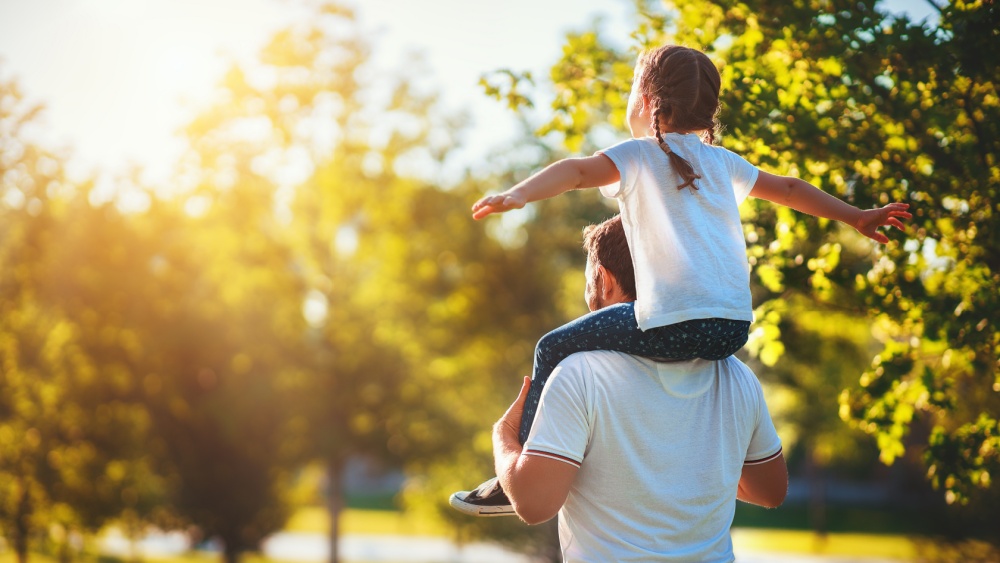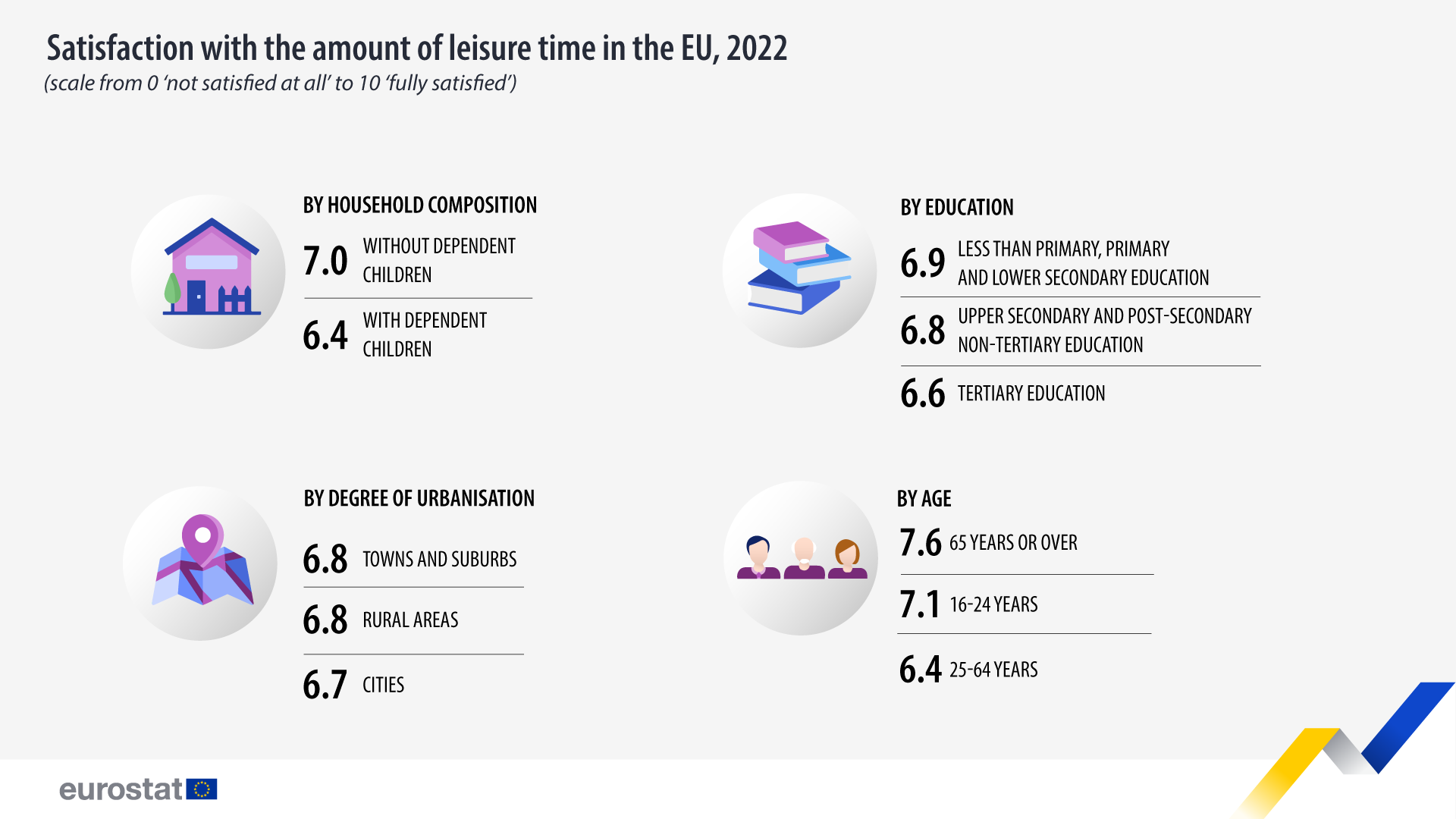Satisfaction with amount of leisure time stable in the EU

In 2022, overall satisfaction with the amount of leisure time in the EU averaged 6.8 points, based on a scale from 0 (not satisfied at all) to 10 (fully satisfied). The score was the same compared with the previous survey in 2018. Within the quality of life framework, information on leisure and social interactions cover quantitative and qualitative aspects. In the 2022 survey of the EU SILC Ad hoc module on health and quality of life, there were a total of 20 variables, covering topics from personal well-being (satisfaction with various life domains, positive and negative feelings such as happiness, inclusion, and loneliness) to social and cultural participation.
There were 11 EU countries which scored 7.0 points or more on overall satisfaction with the amount of leisure time. The highest scores were in Finland (7.7), Denmark and Slovenia (both 7.5). The lowest scores were reported in Greece (5.5), Bulgaria (5.7) and Cyprus (6.2).
Source dataset: ilc_pw01b
Households without children, people with lower secondary education and older adults more satisfied with the amount of leisure time
Data show that in 2022, EU households without dependent children were more satisfied with their amount of leisure time (7.0 points) than households with dependent children (6.4).
Examining satisfaction with the amount of leisure time based on educational attainment reveals an interesting pattern: the more educated (levels 5-8 of the International standard classification of education (ISCED)), the less satisfied people declared to be (6.6 points).
Source datasets: ilc_pw02b and ilc_pw01b
People with lower secondary education (levels 0-2) recorded a higher satisfaction level (6.9), followed by those with upper secondary and post-secondary non-tertiary education (levels 3-4), with 6.8 points.
In terms of age, the highest rate of satisfaction with the amount of leisure time use was registered among older people (65 years and older), with 7.6 points, followed by the youngest group (16-24 years), with 7.1. People aged 25 to 64 were the least satisfied with their amount of leisure time (6.4).
Both in 2018 and 2022, men and women have the same level of satisfaction with the amount of their leisure time, averaging 6.8.
For more information
- Statistics Explained article on quality of life indicators - leisure
- Key figures on European living conditions – 2023 edition
- Thematic section on income and living conditions
- Database on income and living conditions
If you have any queries, please visit our contact us page.

